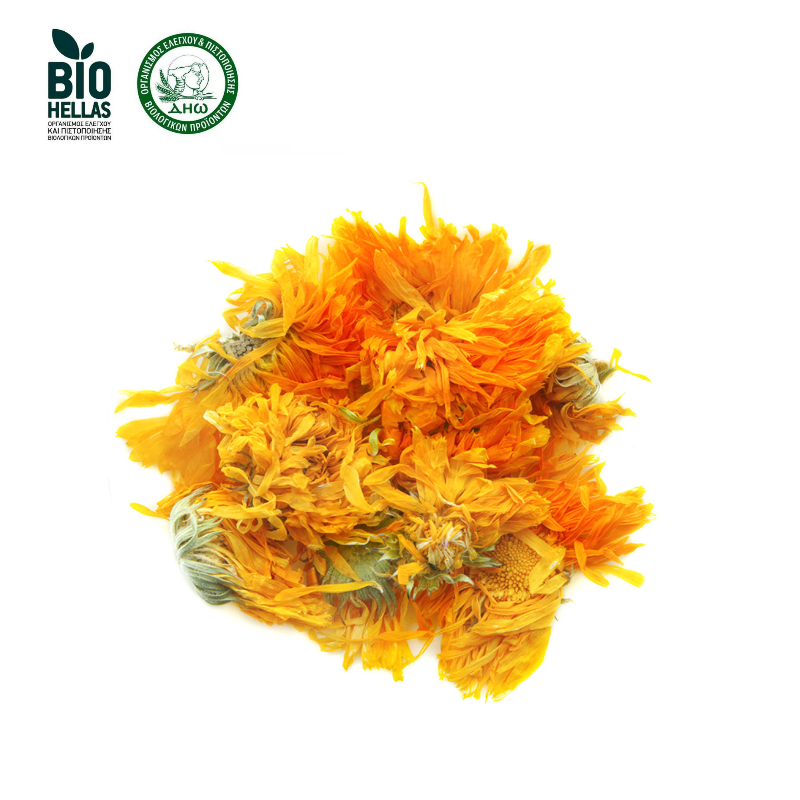Packaging: 70g (also available in 500g and 1kg) containing the flower of the organic plant.
(The price includes VAT.)
Other Names: Marigold
Properties:
- Effective for acne, eczema, herpes, canker sores, leucorrhea, gingivitis, varicose veins, small wounds, and skin cracks (for washes).
- Aids in jaundice.
- Alleviates nervousness, nausea, and acts as a calming agent during pre-menopausal and menopausal periods.
- Helps with delayed and painful menstruation.
- Assists with gallbladder issues and vague digestive problems often described as dyspepsia.
- Improves metabolic functions.
- Exhibits anti-inflammatory properties.
- Beneficial for burns, stings, and infectious conditions (for washes).
- Addresses phlebitis and chilblains (for washes).
- Aids in treating stomatitis (infusion).
- Acts as a digestive aid by increasing bile flow.
- Treats gastritis, gastric ulcers, and duodenal ulcers.
- Treats vaginal inflammations and cysts (for washes).
- For colds, cough, and flu, consume an infusion with honey.
- Acts as a sedative on the central nervous system, used for nervous tension and neurasthenia.
- Helps regulate heart function, lowers heart rate and high blood pressure.
Additionally, the petals are used in cooking as a substitute for saffron.
Origin: Greece, Imathia region (cultivated).
Storage: Keep in a dark and cool place (5°C – 15°C).
Preparation:
Infusion: Add 1 tablespoon of crushed organic calendula (or a pinch of whole flowers) to a container, pour in 1 cup of boiling water, cover, and let steep for 10-15 minutes before straining.
Decoction: Boil 10g of the herb for 5 minutes in 1 cup of water, and use as gargles 3-4 times a day. For washes, prepare the above tea more concentrated at a dosage of 50-60g in 1 liter of water.
Historical Facts:
Calendula has been known in all ancient cultures as a medicinal plant, dye, spice, and magical herb since the Middle Ages throughout Europe. Native to Southern Europe, it is cultivated in temperate regions across Europe.
Scientifically Documented Uses:
The Commission E and ESCOP recommend external use for dermatitis and mucosal inflammation, as well as for wound treatment. The alcohols, terpenes, and flavonoids effectively eliminate various bacteria, viruses, and fungi and also exhibit anti-inflammatory effects.





